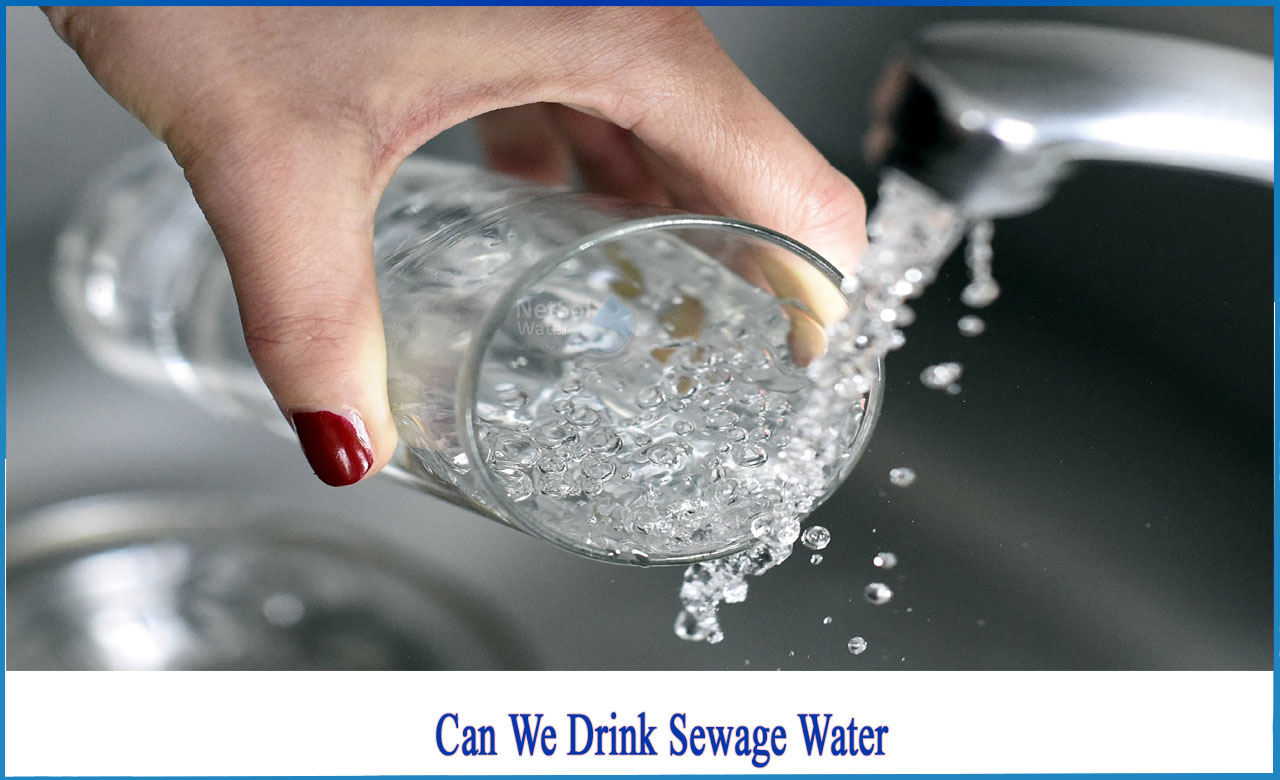Can we drink sewage water?
Whilst you may think such useful technology would be widespread, there has been one major stumbling block: public opinion. Simply put, people do not like the idea of drinking what was previously sewage. This is despite the fact that the treatment process is extremely thorough, frequently producing water that is cleaner than average drinking water.
The key to improving the public’s perception of processing wastewater into drinking water is education.
First and foremost, wastewater is subjected to the standard treatment process. Solids and large particles are filtered out using sedimentation tanks in this procedure. The remaining small organic solids are then consumed by beneficial bacteria added to the water. After that, the water is finely filtered, disinfected, and desalinated.
WHAT HAPPENS IF WE DRINK SEWAGE WATER?
Nobody needs to tell you not to drink sewage water. Sewer water, in general, will make you extremely ill. It's easy to see why. Typically, sewage water contains a variety of organisms that are harmful to the body. When you consume them, you expose yourself to these organisms, which can have an impact on your health and well-being.
Gastro enteritis: This is referred to as stomach flu by others, and it causes symptoms such as fever, diarrhoea, abdominal cramps, vomiting, and even headaches.
Hepatitis: This is caused by liver failure. Fever, jaundice, fatigue, skin discoloration, loss of appetite, diarrhoea, and nausea are common symptoms of this condition.
Dysentery:This also has an effect on the stomach, resulting in symptoms such as fever, stomach cramps, and bloody diarrhoea.
Typhoid fever: This is a bacterial infection that causes a variety of symptoms including high fever, cough, headaches, weakness, loss of appetite, and stomach pains.
Salmonellosis: When Salmonella enters your body, it causes a variety of symptoms such as diarrhoea, abdominal cramps, and fever.
Giardiasis:This usually occurs when sewage water is ingested and contains the Giardia parasite. It causes a variety of symptoms such as stomach cramps, upset stomachs, diarrhoea, and watery stools.
Cryptosporidiosis: This is also a bacterial infection that causes diarrhoea, a slight fever, watery or loose stools, stomach cramps, and upset stomachs.
However, you should be aware that these risks do not apply if the sewage water is purified. As an example, in situations where the sewage water has been purified. And it's deemed safe to drink. Then you can drink it without worrying about any of the health risks listed above.
CAN WE DRINK PURIFIED SEWAGE WATER?
Sewage would first be treated at a plant that removes solids. Following that, waste is removed via microfiltration, and contaminants, including pharmaceuticals flushed down the toilet, are removed via reverse osmosis. Finally, the discharge is sent to the same plant that cleans lake water, where it is chemically treated to remove pathogens. When chlorine and fluoride are added, it flows directly to the faucet. In essence, sewage water will be treated with "safe chemicals" and converted back into potable water for communities.
SEWAGE TREATMENT FOR CONVERTING SEWAGE WATER INTO DRINKING WATER
Sewage first undergoes advanced primary treatment, in which large particles are separated from the water, and then enters sedimentation tanks, where chemicals are used to cause primary sludge to settle to the bottom and scum to rise to the top. After the water has been separated, 80 percent of the solids have been removed, and the wastewater is safe to discharge into the ocean. (Although wastewater has the potential to be a valuable resource, the majority of wastewater produced along our coastlines ends up in the ocean.)
Secondary treatment involves the addition of bacteria to the wastewater to ingest organic solids, resulting in secondary sludge that settles to the bottom.
Tertiary treatment cleans the water by filtering out any remaining solids, disinfecting it with chlorine, and removing the salt. Tertiary-treated water is referred to as "recycled water," and it can be used for irrigation or industrial purposes.
For more details, contact Netsol water.
Netsol Water is Greater Noida-based leading water & wastewater treatment plant manufacturer. We are industry's most demanding company based on client review and work quality. We are known as best commercial RO plant manufacturers, industrial RO plant manufacturer, sewage treatment plant manufacturer, Water Softener Plant Manufacturers and effluent treatment plant manufacturers. Apart from this 24x7 customer support is our USP. Call on +91-9650608473, or write us at enquiry@netsolwater.com for any support, inquiry or product-purchase related query.



